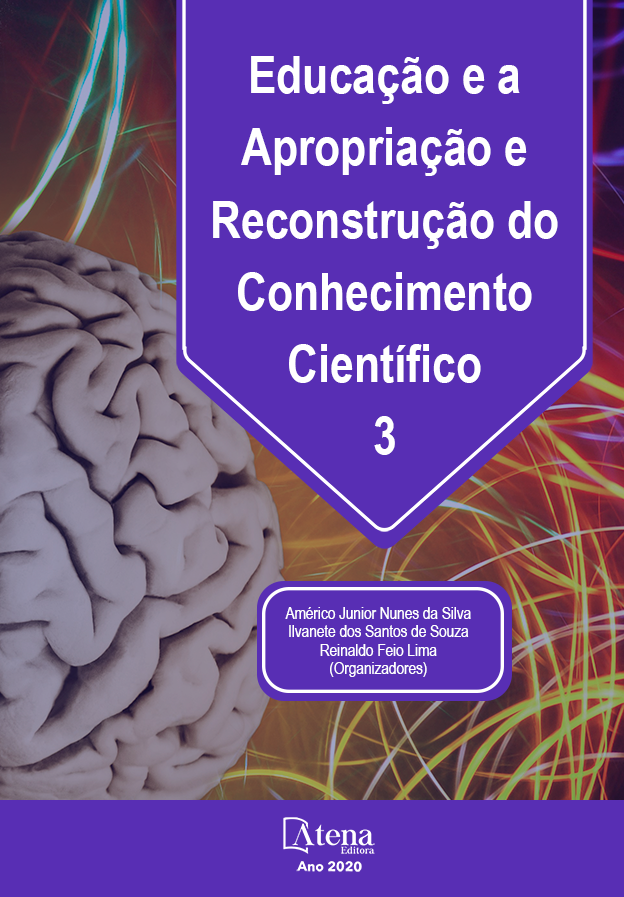
CURRÍCULO ESCOLAR E OS SABERES LOCAIS: PERCEPÇÕES DOCENTES DE UMA COMUNIDADE RURAL
Reconhece-se que a educação é fundamental para o desenvolvimento da nação. Essa, como mecanismo político, considera a proposta do desenvolvimento de um currículo nacional que já era contemplado, previamente a promulgação da Base Nacional Comum Curricular, e foi, a partir dessa, expandido. Consideradas as vantagens e limitações da proposta, discutiu-se a adequação da mesma no sentido de atender a construção do conhecimento para Povos e Comunidades Tradicionais, a partir da perspectiva da articulação da academia, movimentos sociais, e, movimentos de territorialização, de modo a assegurar os direitos e a visibilidade dos povos. Nesse sentido realizou-se entrevista semiestruturada com 23 professores da rede pública de uma comunidade rural da região Norte de Minas Gerais sobre suas percepções da aplicação do currículo comum. Os resultados indicam que 47,83% desses reconhecem que há discussão de aspectos da cultura regional. E ainda, 21,74% consideram importante a discussão de aspectos de regionalidade como tema transversal. Não obstante, 86,96% não fazem tal discussão em função da grande demanda de conteúdos formais e do limitado tempo para apresentação desses. Acredita-se que, em outras localidades, sejam encontradas percepções semelhantes. E conclui-se que, por mais que haja reconhecimento da importância da discussão de elementos da regionalidade e especificidades dos Povos e Comunidades Tradicionais, o empoderamento dessas pessoas acaba não acontecendo como esperado em função da limitação de aplicação de tais discussões.
CURRÍCULO ESCOLAR E OS SABERES LOCAIS: PERCEPÇÕES DOCENTES DE UMA COMUNIDADE RURAL
-
DOI: 10.22533/at.ed.0962027112
-
Palavras-chave: Base Nacional Comum Curricular; Comunidade Rural; Matriz Curricular; Saberes Locais; Percepção Docente
-
Keywords: Brazilian Common Curriculum Core; Rural community; Curriculum; Local knowledge; Teacher's perception
-
Abstract:
It is recognized that education is fundamental for the development of the nation. This, as a political mechanism, considers the proposal for the development of a national curriculum that was already contemplated, previously the promulgation of the Brazilian Common Curriculum Core, and was, from this, expanded. Considering the advantages and limitations of the proposal, its adequacy was discussed in order to meet the construction of knowledge for Traditional Peoples and Communities, from the perspective of the articulation from the academy, social movements, and territorialization movements, in order to ensure the rights and visibility of these peoples. In this sense, a semi-structured interview was conducted with 23 public school teachers from a rural community in the northern region of Minas Gerais about their perceptions of the application of the common curriculum. The results indicate that 47.83% of these recognize that there is discussion of aspects of regional culture. And yet, 21.74% consider it important to discuss the aspects of regionality as a cross sectional theme. Nevertheless, 86.96% do not make such a discussion due to the great demand for formal content and the limited time for its presentation. Similar perceptions are believed to be found in other communities of the region. And it is concluded that, although there is recognition of the importance of discussing elements of regionality and specificities of Traditional Peoples and Communities, the empowerment of these people ends up not happening as expected due to the limited application of such discussions.
-
Número de páginas: 10
- Rânely Nayara Pereira Cruz
- Leonardo Augusto Couto Finelli


